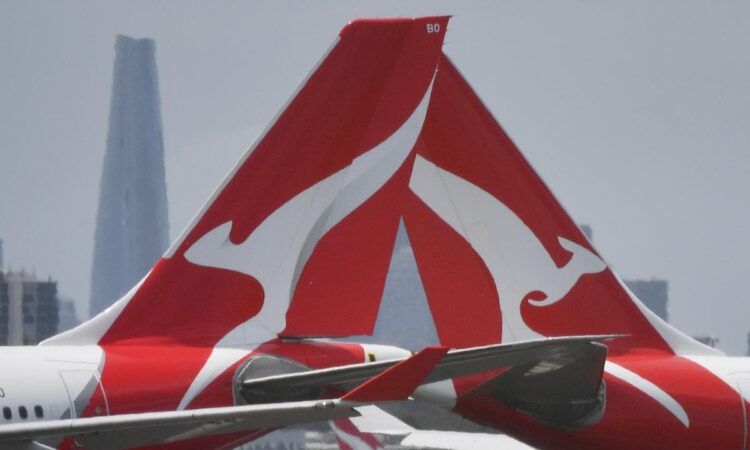Australia is formally considering slamming the border shut to international travel from the United Kingdom and South Africa as a new mutant strain takes hold that is tearing through London.
News.com.au has confirmed that Australia’s top COVID advisory group, the AHPCC is considering the option with government sources describing it as “a medical question” they are leaving to the health experts.
It comes as the virus infects a stunning one in every 30 Londoners in the week between Christmas and New Year’s Eve.
But our hotel quarantine scheme is one reason why the dramatic step may not be taken, with the Morrison Government weighing the impact of slamming the door shut on thousands of Australians seeking to come home.
RELATED: Qantas plan for international flight ‘wishful thinking’
RELATED: Australia can’t contain UK super strain
The advice is that the new ‘mutant’ variant is likely to be the more prominent global strain going forwards.
That means that if Australia banned international air travel from the UK and South Africa it would be inadvertently asking for all borders to potentially be closed with all returning families from around the world shut-out indefinitely.
Federal Health Minister Greg Hunt.Source:News Corp Australia
Epidemiologist and public health specialist Tony Blakely from the University of Melbourne said Australia needed to “close the border or strengthen it as much as we possibly can”.
“We can close the border, that’s quite radical, but it’s on the table as a possibility or we strengthen the border,” Dr Blakely told ABC Breakfast.
“If we did shut the border with the UK and South Africa, the variant that’s there will be in Spain, France, it’s worldwide soon,” he said.
“We could well end up shutting the borders to everyone.”
The Morrison Government is also mindful that most other countries do not have hotel quarantine for international travellers – which is why they are only now turning to closing borders.
Australia’s borders have been effectively closed since March, with quarantine for returning Australians and essential workers.
Health Minister Greg Hunt confirmed today Australia’s rollout of the coronavirus vaccine could begin as early as the beginning of March instead of later in the month as originally planned.
The vaccination program is expected to run until October the timetable the government expects it will take to vaccinate the majority of the community.
“Safety trumps everything,’’ Mr Hunt said.
“We’ve been able to bring our vaccination commencement schedule forward from the middle of the year to the second quarter, to late March and now to early March. And I’m not ruling out further steps.
“And there are some, such as Mr Albanese, who might want us to skip the testing of batches or skip the full approvals process. We’ve seen jurisdictions overseas where they’re considering changing the manufacturing advice or even mixing vaccines, for which there’s no advice that we have and no evidence.”
When the vaccine is first rolled out, frontline workers, including those working in hotel quarantine and borders, are first in line followed by health workers and thirdly, residential aged care facility residents.
There are also concerns over the decision in the UK to rush out the vaccine to as many people as possible but to delay the second dose for longer.
Britain’s top COVID-19 adviser has confirmed overnight the plan to space the second COVID-19 vaccine dose by up to 12 weeks could spark a mutant strain and that is “a real worry but a small worry”.
“By extending the gap, we are going to, over the next three months, be able to essentially double the number of people who can be vaccinated,’’ he said.
The emergency measure is simply designed to give more people some protection from the virus faster.
“There are obviously some unknowns in that. And there’s quite a vigorous scientific debate about some of those unknowns. And one of the things people have raised, as a theoretical risk, that by having this longer gap, you could actually lead to a slightly increased risk of an escape mutant. And that is a real worry, but quite a small, real worry within the system,’’ he said.
trending in travel
Source: Read Full Article


